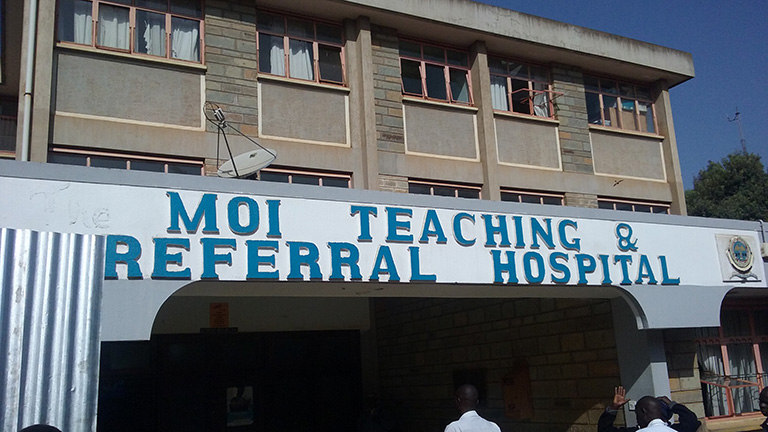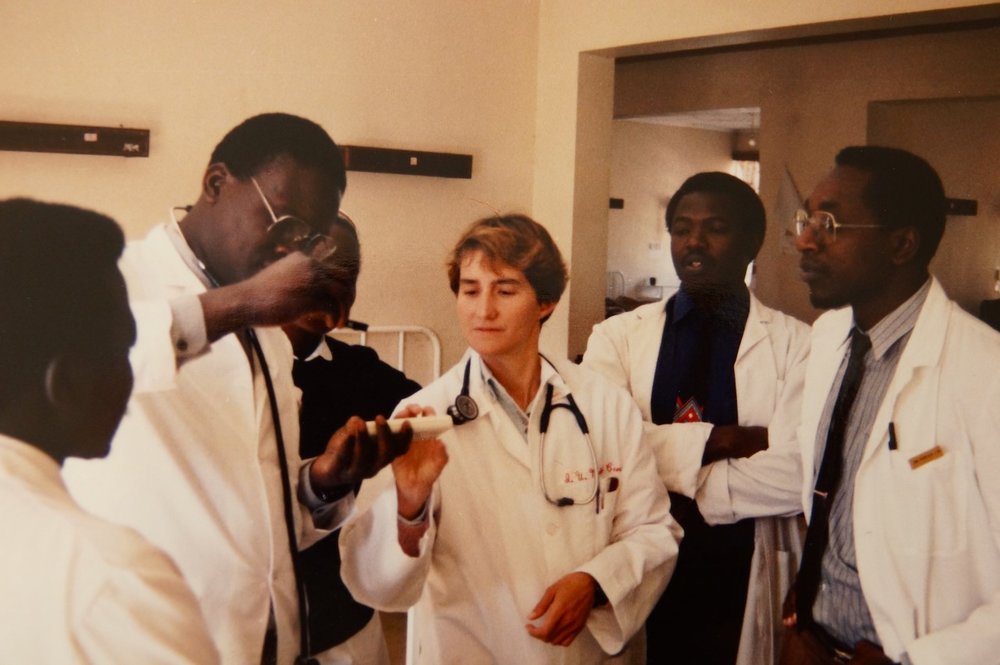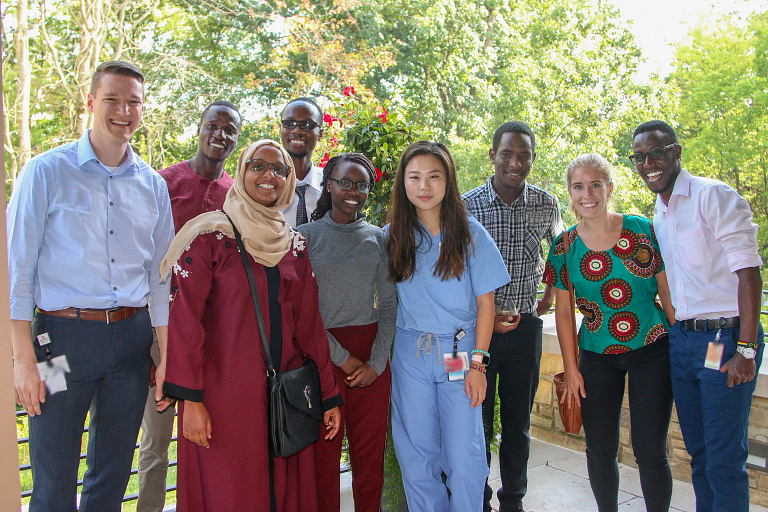The (IUSM) initiated a partnership with Moi University in Kenya when Doctors Bob Einterz, Joe Mamlin, Charlie Kelley, and Dave Van Reken set out on an international tour in 1988. They were looking for a medical school that not only had the need but also the vision to create a medical school curriculum around a broad, community-based service.

The Moi University School of Medicine Dean, Haroun N. K. arap Mengech shared these goals, and Moi University welcomed its first class of 40 medical students in 1990. Alongside Kenyan colleagues, IUSM doctors cared for Kenyan patients, conducted health research, and taught American and Kenyan medical trainees.
The partnership between IUSM and Moi University was so successful that other North American universities joined the consortium in 2001. The partnership became known as the Academic Model Providing Access to Healthcare, or AMPATH. With the support of the U.S. Agency for International Development, the National Institutes of Health, and the Bill and Melinda Gates Foundation, AMPATH has attracted over $180 million dollars, while producing over 1,000 peer-reviewed journal articles pertaining to research and programs that provide health benefits to Kenyans and others around the world.

AMPATH became one of Africa’s largest, most comprehensive, and effective HIV/AIDS care and control programs. It serves a population of over 8 million Kenyans, not only through HIV testing and treatment but also maternal and child health, nutrition, counseling, and helping patients regain financial stability and independence. In addition to making HIV/AIDS a priority, AMPATH expanded to focus on care for such chronic diseases as cancer and diabetes.
In 2007, Indianapolis resident Dr. Joe Mamlin, one of the founders of the program, was nominated for the Nobel Peace Prize, and U.S. ambassador to Kenya, Michael Ranneberger, called AMPATH “an academic miracle.”

The IU Center for Global Health on the Indiana University School of Medicine campus in Indianapolis leads the AMPATH Consortium of academic health centers. AMPATH also maintains offices in Eldoret, Kenya. In partnership with the Kenya Ministry of Health, the network includes over 800 clinical sites, ranging from village health care centers and dispensaries to the Moi Teaching and Referral Hospital. Researchers and advocates of the program also seek ways to improve health care access and policy worldwide.
CITE THIS ENTRY
APA:
Van Allen, Elizabeth J. (2021). AMPATH. Encyclopedia of Indianapolis. Retrieved Jan 31, 2026, from https://indyencyclopedia.org/academic-model-providing-access-to-health-care-ampath/.
MLA:
Van Allen, Elizabeth J. “AMPATH.” Encyclopedia of Indianapolis, 2021, https://indyencyclopedia.org/academic-model-providing-access-to-health-care-ampath/. Accessed 31 Jan 2026.
Chicago:
Van Allen, Elizabeth J. “AMPATH.” Encyclopedia of Indianapolis, 2021. Accessed Jan 31, 2026. https://indyencyclopedia.org/academic-model-providing-access-to-health-care-ampath/.

Help improve this entry
Contribute information, offer corrections, suggest images.
You can also recommend new entries related to this topic.